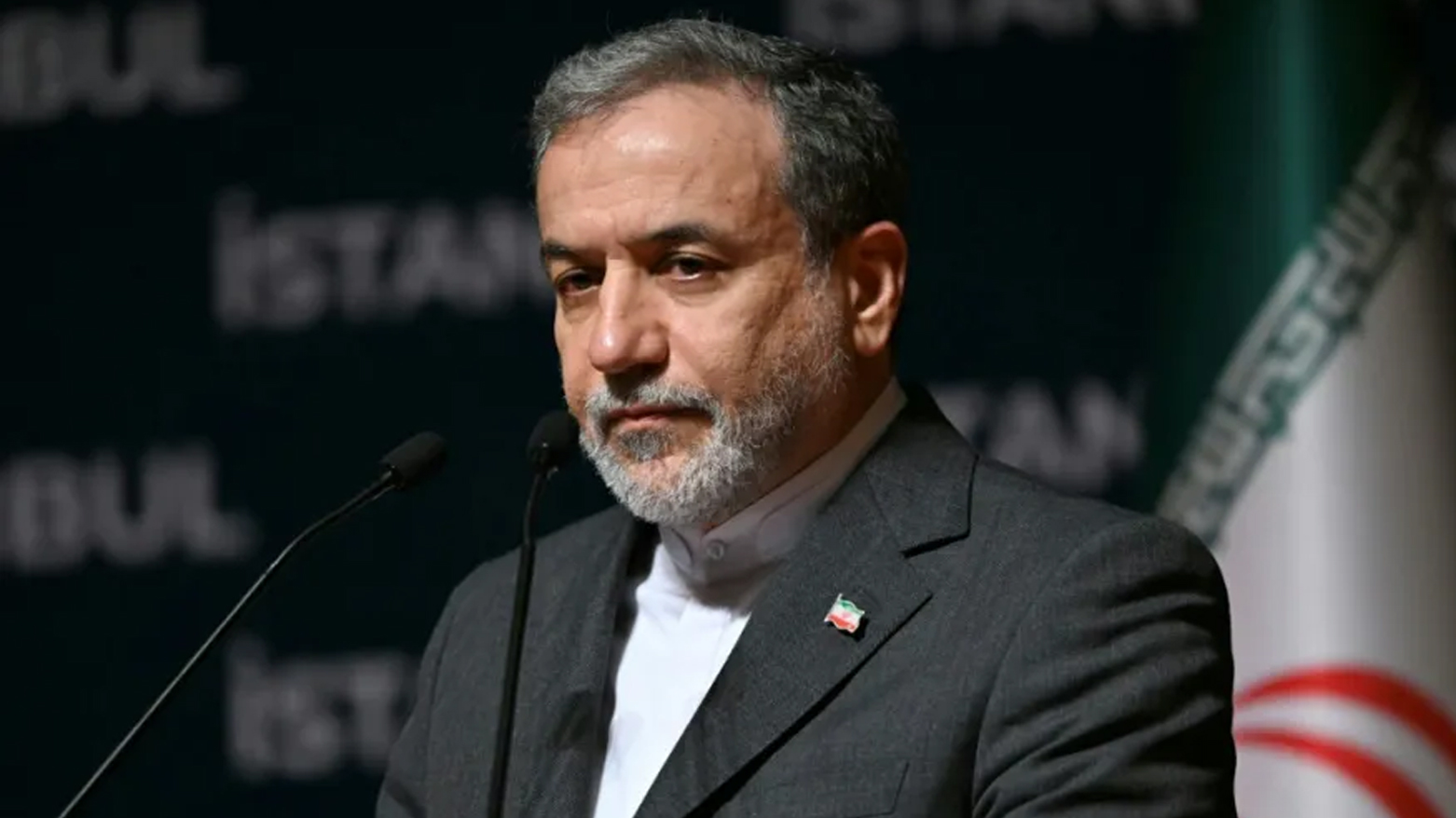Iran’s Foreign Minister: No Interference in Lebanon, But We Express Our Views — and We Reject the Division of Syria
Iran FM Araghchi says ready to resume US nuclear talks with non-aggression guarantees. He rejects Syria's division, denies interfering in Lebanon, and warns Israel against renewed conflict.

ERBIL (Kurdistan 24) – Iranian Foreign Minister Abbas Araghchi declared that Tehran is ready to resume nuclear negotiations with the United States, but only under guarantees of non-aggression, while also stressing that Iran rejects any attempts to divide Syria. Speaking to Asharq Al-Awsat in Jeddah on Tuesday, following his participation in the Organization of Islamic Cooperation (OIC) meeting on Gaza, Araghchi touched on a wide range of regional issues, including Lebanon, Israel, and the Gulf.
Araghchi reiterated Iran’s willingness to return to negotiations on its nuclear program, but insisted that the talks must be “fair and balanced.” He explained that indirect talks with the United States could be possible if Washington guarantees it will not resort to military action during the negotiations.
“We must be assured that when the Americans come to the table, it is for negotiations built on mutual interests,” Araghchi said. “If they think they can achieve through talks what they failed to achieve through military strikes, then such negotiations will not happen.”
The minister recalled that Israel and the U.S. launched attacks during earlier talks. “This time will not be like the past,” he warned, stressing that Tehran’s position on indirect dialogue has not changed.
Addressing tensions with Israel, Araghchi did not rule out the possibility of renewed confrontation. “There is a possibility for everything, and we are ready for all circumstances,” he said.
Recalling the 12-day conflict, he said Israel and the United States failed to achieve their objectives, while Iran “resisted heroically” and continued missile strikes until the last moment. “After 12 days, it was Israel that requested an unconditional ceasefire. If they repeat the scenario, we are ready again,” he warned, stressing that military options against Iran “are failures by nature.”
The minister underlined that recent conflicts in Gaza, Lebanon, and Syria had revealed Israel as the main threat to the region. “The entire region now realizes that the real enemy is the Zionist entity, which seeks to keep the Middle East weak and fragmented,” he said.
He noted that since Iran’s new government took office, he had worked to accelerate trust-building with regional neighbors. “I personally met Crown Prince Mohammed bin Salman twice in the past year,” Araghchi revealed, calling the meetings “unprecedented” in the history of relations.
Iran has also resumed contacts with Egypt, Jordan, and other states. “Even though diplomatic ties with Egypt are not fully restored, my communications with my Egyptian counterpart are more frequent than with others in the region,” he said.
Araghchi disclosed that during the 12-day war, Israel targeted Iranian oil facilities in Asaluyeh in an effort to drag the conflict into the Gulf and ignite a “war of oil.”
He insisted that Iran’s official policy is stability in the Gulf: “Iran is a producer and exporter of oil, our economy relies on it, and therefore we want navigation to remain free for all.” He said Gulf states should direct their concern toward “Israel’s destabilizing schemes,” not Iran.
Responding to accusations of interference in Lebanon, Araghchi asserted: “We do not intervene in Lebanon’s internal affairs, but like any other state, we have the right to express our views.”
He argued that the question of Hezbollah’s weapons rests solely with the party itself and the Lebanese government. “The plan to disarm Hezbollah is one hundred percent Israeli,” he said, adding that Hezbollah has proposed a national dialogue to define Lebanon’s security strategy.
Araghchi compared Israel’s actions in Syria and Lebanon, saying: “Even after Assad’s fall, Israel occupied more Syrian land and destroyed the new government’s military capabilities. This is the same plan they want to impose on Lebanon—weakening and disarming it.”
Araghchi strongly emphasized Tehran’s commitment to Syria’s territorial integrity. “We are with the unity of Syrian lands and against any attempt to divide it,” he said.
He warned that instability would only turn Syria into a safe haven for extremist groups, harming the entire region. “We want stability and calm in Syria,” he said.
The minister noted that Iran has had no official contact with Syria’s new government yet, but added: “When they reach the conviction that relations with Iran serve Syria’s interests, we will consider it.”
Araghchi urged regional states to recognize Israel as the true destabilizer and to avoid concessions that would only embolden it. “The more concessions given to Israel, the more it expands and grows bolder,” he said.
He stressed that Iran’s approach in the region remains based on resistance: “It was not diplomacy or dialogue with America that protected us, but our missiles. Whoever confronts Israel must do so with strength, not weakness.”
